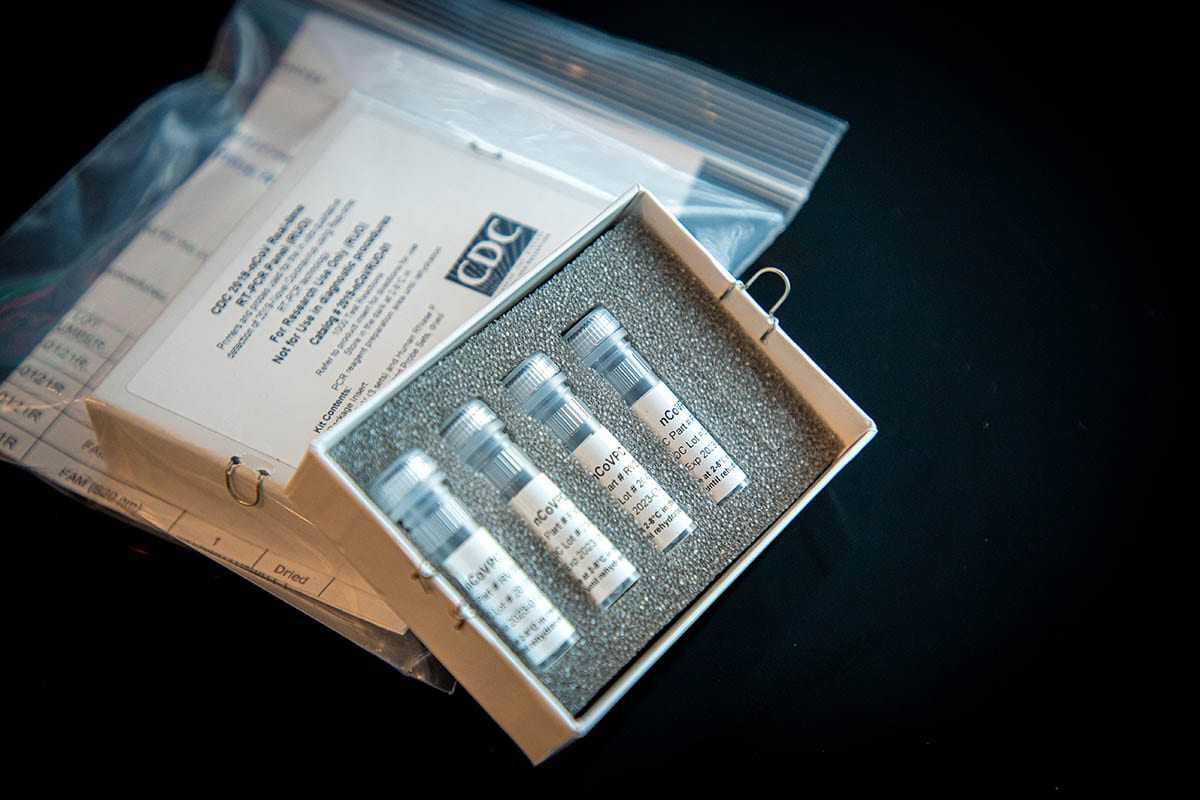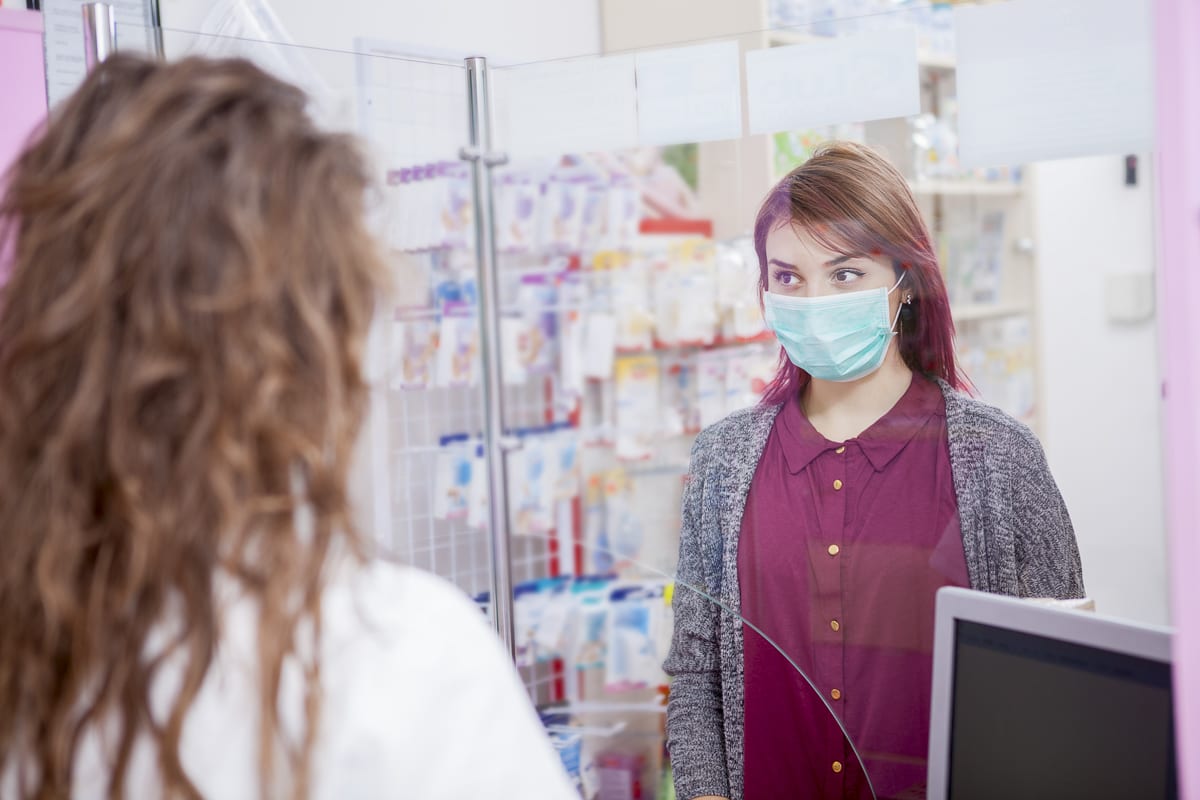The agency is working with hospitals to implement a quarantine plan if tests come back positive
VANCOUVER — Clark County Public Health has confirmed eight people are being tested for possible infection with the SARS-CoV-2 virus, which is known as Covid-19 once an infection is confirmed.

Currently, testing is only being done for people who have recently traveled to an area outside of the country where Covid-19 infections are known to exist, or have come to a hospital exhibiting symptoms of the disease. Dr. Alan Melnick, public health officer for Clark County, says all eight, including seven on Monday and one on Tuesday, had come to the hospital exhibiting symptoms.

“If we get a confirmed case, we will be interviewing the case or the family of the case and finding out, just like we did for measles, where the case was up to 14 days before they got sick,” says Dr. Melnick. “Once we identify the close contacts, we will be having them stay in quarantine for 14 days, and then get them tested if they develop symptoms.”
Tests can now be sent to the state lab in Shoreline, Washington, rather than to the Centers for Disease Control (CDC) in Washington, D.C., so Dr. Melnick said results could come back as soon as tomorrow.
The largest issue surrounding the virus, which first emerged in Wuhan, China late last year, is that it remains unclear when someone who has been infected might be contagious. The current incubation period of the virus seems to be anywhere from 2 to 14 days, with first symptoms being a dry cough with a fever, followed by difficulty breathing. In severe cases, Covid-19 can progress to pneumonia, making it dangerous for the elderly and people with underlying health conditions.
While approximately 80 percent of infected individuals will have only mild symptoms, that can make the risk of spreading the disease much higher, says Dr. Melnick, because people may not think they’re sick enough to stay at home.
“If you have symptoms, mask or no mask, you shouldn’t be going out,” says Dr. Melnick. “ And that’s a mantra that people need to repeat.”
Currently it is believed the SARS-CoV-2 virus is spread only through surface contamination or direct contact with droplets from coughing or sneezing. The virus is not believed to remain in the air long after someone sneezes or coughs, unlike Measles, which can remain aerosolized up to two hours.
That means your best bet to avoid becoming sick is to wash your hands frequently, using soap and water, for at least 20 seconds, and avoid touching your face.
If you become sick and feel like you need to see a doctor, call ahead so that they can be prepared to meet you. Hospitals are implementing procedures to have potentially infected patients met outside of the hospital by people wearing special protective clothing, then brought into isolation rooms in a way that won’t expose other patients.
The CDC, along with the World Health Organization (WHO) and numerous pharmaceutical companies are working overtime, trying to develop a vaccine for Covid-19. Even working at a record pace, it will likely be around 18 months before one could be tested and deemed safe and effective.

In the meantime, the primary goal of health officials will be to limit the spread of the disease to vulnerable populations.
“We’re not going to stop it. But one of the things we’re trying to do is reduce where people are exposed,” says Dr. Melnick. “The longer we can hold this off, the better we will be.”
While little is known about the actual mortality rate of the virus, it is clearly much more deadly for the elderly and people with underlying health conditions. In one study of cases in China, people over the age of 80 had a mortality rate of more than 40 percent.
On Tuesday, health officials in King County confirmed nine people have now died from Covid-19, most from exposures at an adult care facility in Kirkland.
That means Clark County Public Health will be working closely with assisted living facilities and elder care centers, helping to make sure they’re disinfecting well, and potentially closing down kitchens and common areas to prevent the virus’ spread should cases be confirmed locally.
In the most extreme cases, should the virus spread widely through the area, public health could request that events, such as concerts or conferences be canceled or postponed, and even shut down movie theaters in a move known as social distancing.
What are schools doing?
School districts in Clark County have been communicating with parents through letters, or information posted online.
Ridgefield School District showed students an age-appropriate video today on proper handwashing techniques, and discussed a CDC posted called “Stop the Spread of Germs,” followed by a discussion.
Vancouver, Camas, Battle Ground, and Evergreen school districts said they are working to consistently disinfect surfaces that are contacted frequently, and educating students on how to stay safe.
Clark County Public Health coordinates with districts in order to reach a decision about whether school should be canceled in the event of an outbreak. A number of schools closed in late 2018 to help prevent the spread of the measles during a major outbreak. Dr. Melnick says that move was highly effective, with nearly 9 in 10 cases coming from at-home exposure towards the end of the outbreak, rather than from being out in public.
Is it time to panic?
No need to panic, says Dr. Melnick, but being prepared is never a bad idea. So, if it makes you feel better to have a closet full of toilet paper and a cabinet loaded with hand sanitizer, go ahead.
“We could have an earthquake in the next week,” says Dr. Melnick. “So we’re not suggesting that people don’t be prepared.”
But, he says, between quarantine measures being put in place, proper hygiene, and people staying home if they don’t feel well, there’s hope the virus can be contained or slowed down long enough for treatment options to be discovered.
Oh, and one final bit of advice from Dr. Melnick, “people should not be getting their information off of social media.”
Instead, he says, you can check the Clark County Public Health website, as well as the CDC’s Coronavirus information page, and updates from the World Health Organization.
The state health department also has updated information on its page about the outbreak in Washington.




